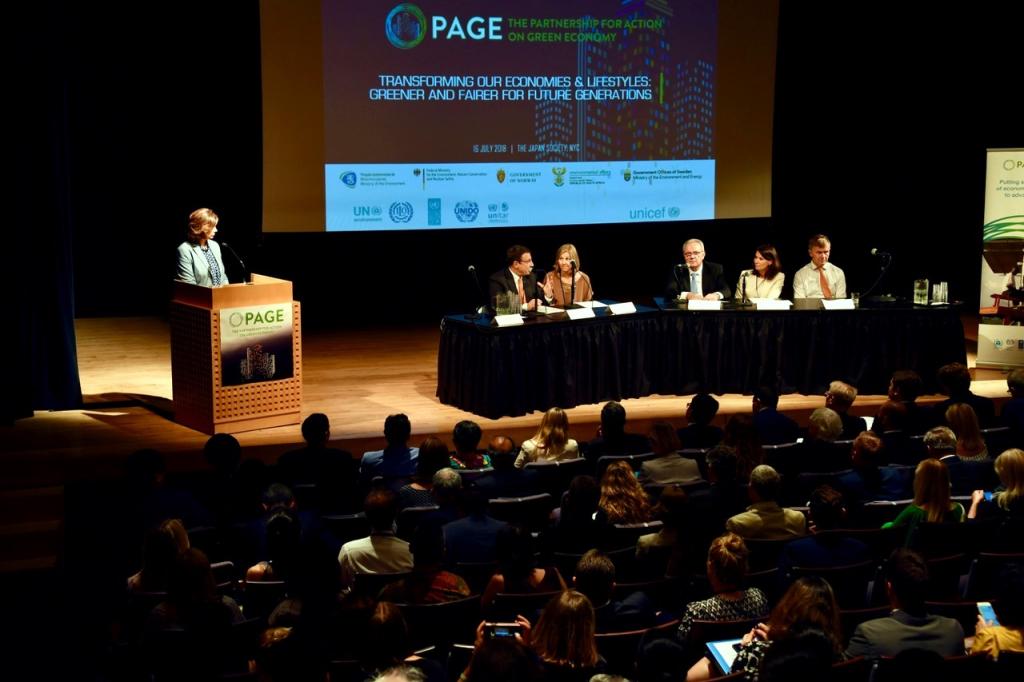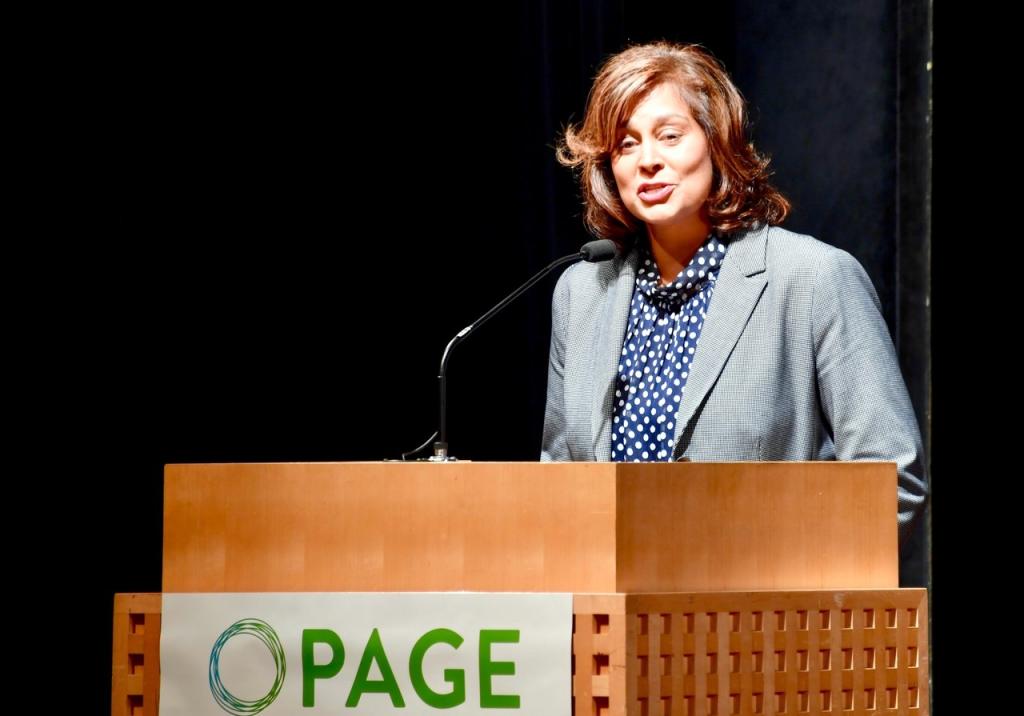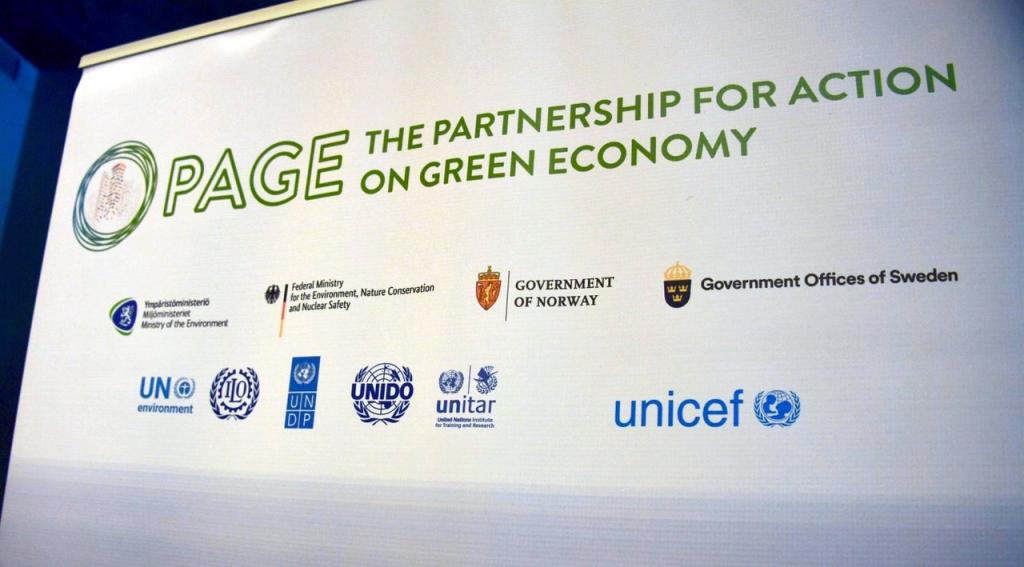Making the Green Economy the New Status Quo

Summary
- Policymakers around the world are trying to reshape their economic systems to more effectively incentivize sustainable businesses and lifestyles
- Financial institutions are acting to shift businesses towards more environmentally and socially sustainable behaviours and priorities
- Entrepreneurs are increasingly putting sustainability and social justice at the core of their business models – going beyond corporate social responsibility to using purpose as their competitive advantage
17 July 2016, New York, the United States – Usually the story goes like this: businesses are taking advantage of loopholes to increase profits at the expense of the environment and local communities, and the policymakers are scrambling to close these loopholes. However, more and more, we’re seeing evidence of the opposite: businesses are taking advantage of the market demand for sustainable and ethical products, and policymakers are trying to regulate to incentivize and replicate these behaviours.

Business-as-usual is still the usual, of course. But policymakers in some countries are working to redesign their whole economic system to weed out perverse incentives in the economy, and design in desired catalysts for greener and fairer workplaces, products and lifestyles.
Guy Ryder, head of the International Labour Organization (ILO) said,
“There is a major employment dividend to be had from action to protect the planet, from action against climate change. We reckon that 24 million jobs can be had from here to 2030 from action against climate change”.
His words came during an address last night on the sidelines of the UN’s High-Level Political Forum, at which world leaders gather to assess their progress against the agreed-upon Sustainable Development Goals.
The event, entitled “Transforming our economies and lifestyles: greener and fairer for future generations,” homed in on finance and lifestyles as key drivers for inclusive, green economies. The Partnership for Action on Green Economy (PAGE) – a UN program supported by various funding partner countries that helps governments go through precisely this process of reorienting their economies to value sustainability and social equity – hosted the event.

At the event, UNITAR Exective Director, Nikhil Seth stated,
“There’s so much to inspire, there’s so much to learn, there’s so much knowledge. But are we reaching enough people? It’s that critical mass of people that we reach that’s going to make a difference. Are we penetrating the minds of the decision-makers who we need to penetrate? Have we got to the business sector as deeply as we need to do? The case I want to make is for a much stronger effort at awareness and attitudinal and behavioural shifts in every sector of society.”
Lena Hök, from Moody’s Investors Service remarked on the role that financial institutions could play in reorienting market incentives. She said,
“When financial institutions raise environmental or social demands on their investments, it gets a real leverage in the business world. Green bonds and investments signals to companies the need to integrate sustainability processes into their core business, measure their work and be transparent with the performance. By doing so business gets a better understanding of their risks and business opportunities as well as a clearer pathway on how to contribute to the sustainability agenda.”
Some organizations may already be ahead of the pack. Lance Gould, co-founder of Silicon Valley Story Lab said,
“We’re currently witnessing a zeitgeist moment, where consumers want companies to define who they are and what they stand for,”
According to Mr. Gould, there is a growing emergence of “a model in which companies actually commit to becoming purpose-driven, and try to make it a competitive advantage of theirs.”
While the mood in the room was upbeat and optimistic, some of the speakers acknowledged that it won’t all be plain sailing ahead. Rita Schwarzelühr-Sutter, State Secretary for the Federal Ministry of Environment from Germany, also funding partner of PAGE stated,
“We have to be honest that there won’t be only win-win situations. We must, therefore, ensure the success of structural transformation without causing harsh structural breaks.”

Related Links
More information on the PAGE event
More information on the High-Level Political Forum and the Sustainable Development Goals
About PAGE
Since 2013, The Partnership for Action on Green Economy (PAGE) has grown into an increasingly prominent alliance of UN Agencies, international partner organizations and governments. The partnership is recognized as an innovative and efficient model of excellence for delivering on the 2030 Agenda. Drawing on the expertise of five UN Agencies – UN Environment, the International Labour Organization, the UN Development Programme, the UN Industrial Development Organization, and the UN Institute for Training and Research – PAGE challenges business-as-usual growth and business models, and places sustainability at the heart of economic systems. At the global level, PAGE partners with the donor community, the wider UN system, governments, civil society and the private sector to amplify and accelerate transitions to greener, more inclusive development, and to support future generations and sustainable development pathways. More | Annual Report 2017
For more information and to arrange interviews, please contact: Jessica Hyne (Communications Consultant, PAGE Secretariat), +41 22 917 8977, jessica.hyne@un.org
Photo 1: The event "Transforming our economies and lifestyles: greener and fairer for future generations”
Photo 2: The event moderator Ms. Zain Verjee, Former CNN International Anchor, CEO Zain Verjee Group
Photo 3: The Partnership for Action on Green Economy (PAGE)
Further Quotes from the Event
“Let’s be clear: the benefits of a green economy go beyond the strictly environmental. Those whose livelihoods are threatened the most by environmental degradation and climate change are often amongst the poorest and most affected by fragility. The shift to a green economy, therefore, is not just imperative to safeguard our planet, it is also a key piece to address the puzzle of inequalities, create quality jobs and strengthen the resilience of individuals, communities and societies” - Mr. Neven Mimica, Commissioner for International Cooperation and Development, European Commission
“We have an entire agenda around development that presupposes that the transition in the green economy context is actually something that’s going to happen. Because without it, the attainment of the Sustainable Development Goals or the 2030 Agenda is purely a theoretical exercise.” - Mr. Achim Steiner, Administrator, UN Development Programme
“I don’t believe in frightening people into shifting their lives. I believe in making sustainable lifestyles attractive, and reachable for all. I propose to the politicians to dare to be a bit bold when talking to the financing market: and to push them. It doesn’t necessarily mean to regulate them, but to push them, and don’t be afraid.” - Ms. Karolina Skog, Minister for Environment and Energy, Sweden

